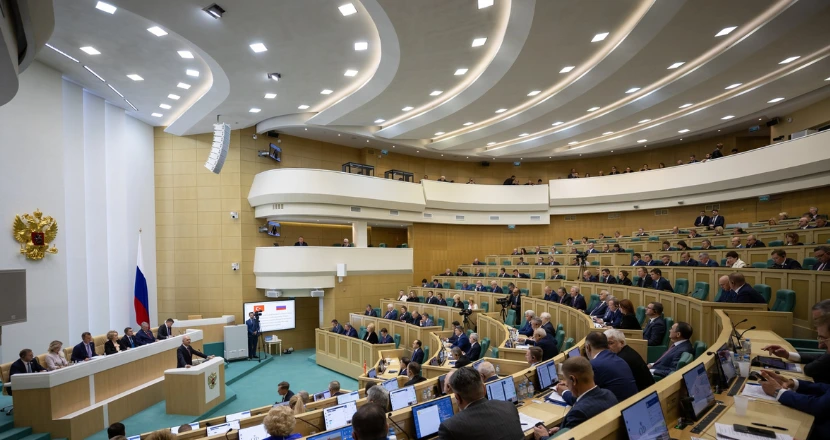Russia is planning to impose stricter regulations on the income of individuals labeled as “foreign agents” and those who criticize the country after leaving, according to the speaker of the Russian parliament.
Under current Russian law, anyone receiving foreign support or deemed influenced by external forces must register as a “foreign agent.”
This label carries negative historical associations with the Soviet era and imposes heavy bureaucratic burdens.
Though the Russian law is claimed to be more lenient than the U.S. Foreign Agents Registration Act of 1938, it has been widely applied to opposition leaders and is viewed by some dissidents as a symbol of resistance.
Vyacheslav Volodin, the head of the lower house of parliament, announced that new regulations would target payments for intellectual property, requiring “foreign agents” to use special ruble accounts for all payments related to intellectual work.
This includes income derived from scientific, literary, and artistic work, as well as broadcasting, inventions, and trademarks.
Volodin emphasized that individuals who criticize Russia, including those involved in the military operation in Ukraine, should not profit from Russia’s resources.
The Russian government refers to the conflict in Ukraine as a “special military operation,” though many top officials, including President Vladimir Putin, also use the term “war.”

Volodin further stated that the government is looking to enforce measures against individuals who, although not labeled as foreign agents, continue to criticize Russia after leaving the country.
As of now, 881 people and organizations are officially listed as foreign agents by Russia’s justice ministry, including former billionaire Mikhail Khodorkovsky, Nobel laureate Dmitry Muratov, and prominent YouTube personality Yuri Dud.
Supporters of Putin argue that the foreign agent law is necessary to protect Russia from foreign interference, particularly in light of the ongoing conflict with the West over Ukraine.
They claim that Russia is clearing out the pro-Western elite that emerged after the Soviet Union’s collapse in 1991 and replacing them with patriotic artists and intellectuals who will defend Russia’s sovereignty.
Opponents of the law, however, argue that it is part of a broader crackdown on dissent, turning Russia into an authoritarian state where creativity and independent thought are increasingly suppressed.